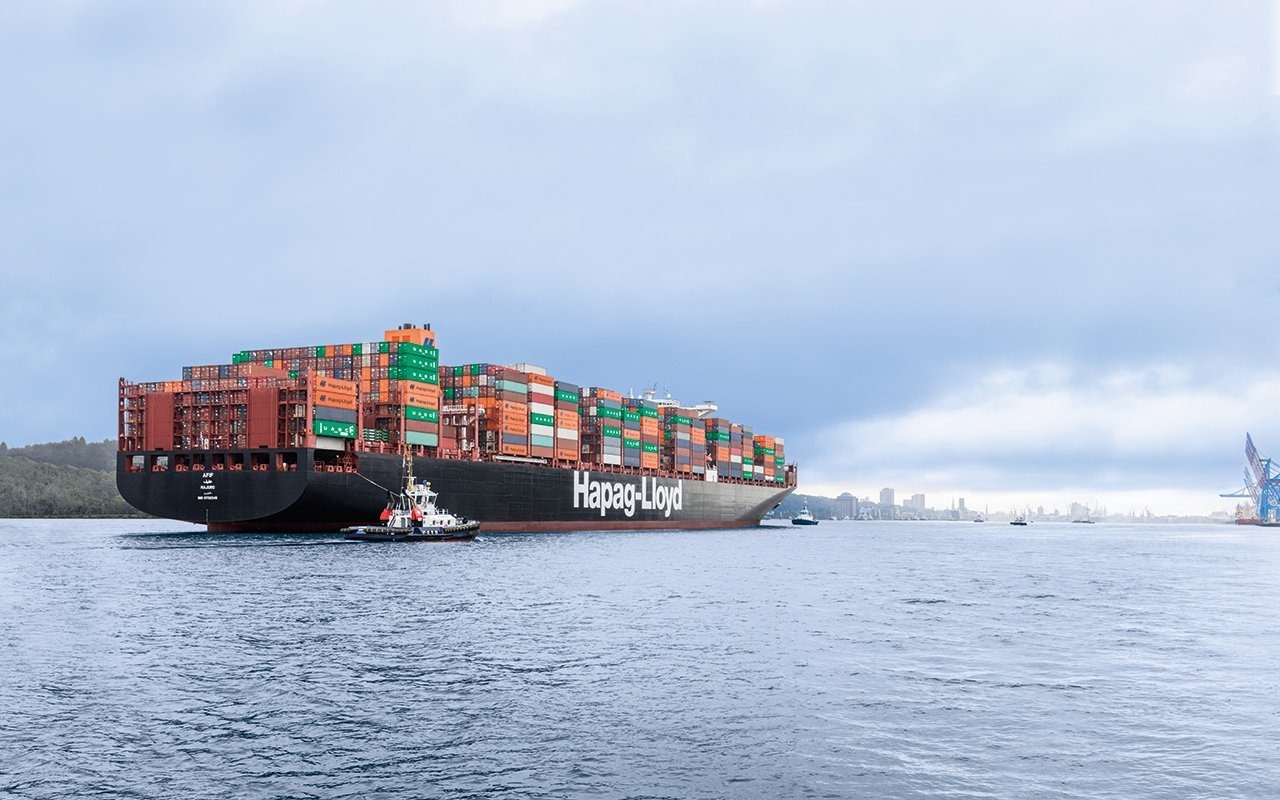
BAROMETER. As a passage by the Cape of Good Hope becomes commonplace, a certain strain on capacity is being felt.
Houthis who are losing some of their striking power, sailors who are organising themselves and no longer want to be targets in the Red Sea and a destroyed bridge in the United States of which the effects are still being felt : here are the main markers of this month of April that has brought us its share of surprises, in a context of strengthening demand with ships announced fully laden for May departures from Asia to Europe.
Highlights
- The Houthis, a declining threat but over a wider distance
While the number of attacks on merchant ships seems to be decreasing around the Strait of Bab-el-Mandeb, threats and intimidation are now more spread out. As of today, the Houthis do not have the capability to globally threaten Asia-Europe merchant traffic voyaging via the Cape of Good Hope. Their strike capability is beginning to suffer significantly from the joint actions of US and European naval forces.
The fact remains that we are now entering a semester of disruptions in the Red Sea, which, from an economic point of view, is no longer an epiphenomenon or an occasional variable. It is now known that this parameter will affect the current fiscal year and that the initial forecasts for 2024 were largely erroneous.
- Seafarers who increasingly refuse to sail in the area
On 12 March, the International Bargaining Forum (IBF), which brings together representatives of employers and maritime transport employees, decided to designate the Red Sea and the Gulf of Aden as "warlike", whereas they were until now considered as high-risk areas, "to emphasise the seriousness of the situation", says a press release entitled "Seafarers lives matter".
This decision was taken unanimously by the IBF Warlike Operations Area Committee, after the attack on the ship True Confidence which claimed the lives of three seafarers. In particular, it allows seafarers to obtain wage compensation if they sail in the zone, but also, if necessary, to refuse to enter this warlike zone without being penalised. A relief for seafarers because today, a majority of container ship crews do not consider a military escort to be sufficient protection.
- A New Front in the Strait of Hormuz
While the tension seems to be durably setting in around the Red Sea and the Gulf of Aden, with a widening of the threat to the Somali coast or even to the northwestern tip of the Indian Ocean, a new front opened on the side of the Strait of Hormuz since the capture of the MSC Aries by the Iranian Revolutionary Guards.
Even though this action has affected a container ship, the Strait of Hormuz is mainly strategic for oil transport, with about 20% of the hydrocarbons consumed in the world passing through this route. Tension in the area can therefore lead to upward speculation on petroleum products. The risk is proven, even if for the moment, the markets remain calm.
- Further Investigations into the Baltimore Bridge Accident
As expected, the collapse of the Francis Scott Key Bridge in Baltimore, despite the disruption it causes, did not fundamentally affect the market for regional freight rates. The activity shifted to nearby ports, with the exception of coal and some automotive traffic.
The surprise came rather from the announcement of the opening of a criminal investigation by the FBI, which wants to determine if the crew left port knowing that the ship had serious systems problems. The City of Baltimore also sued the owner and operator of the vessel, Grace Ocean Pte Ltd and Synergy Marine Group, for damages. The city accuses the companies of negligence in the operation of the ship, and claims that the collapse of the bridge led to the economic engine of the city grinding to a halt.
In addition, the ship declared itself in general average late, which means that the goods on board become financially jointly and severally liable for the incident. This may be very expensive for shippers who had merchandise on board not covered at least by a "FPA except" guarantee.
1/ Prices
To fully understand the pricing dynamics in April and May, it is necessary to integrate three parameters.
The market leader, MSC, is giving a strong fare restoration signal on its FAK rates for May between Asia and Europe (...)
Jérôme de Ricqlès
Shipping expert
Our latest articles
-
7 min 03/03/2026Lire l'article
-
Subscriber France: Road transport prices remained almost stable in January
Lire l'article -
Hapag-Lloyd - Zim: a shipping deal with geostrategic implications
Lire l'article


